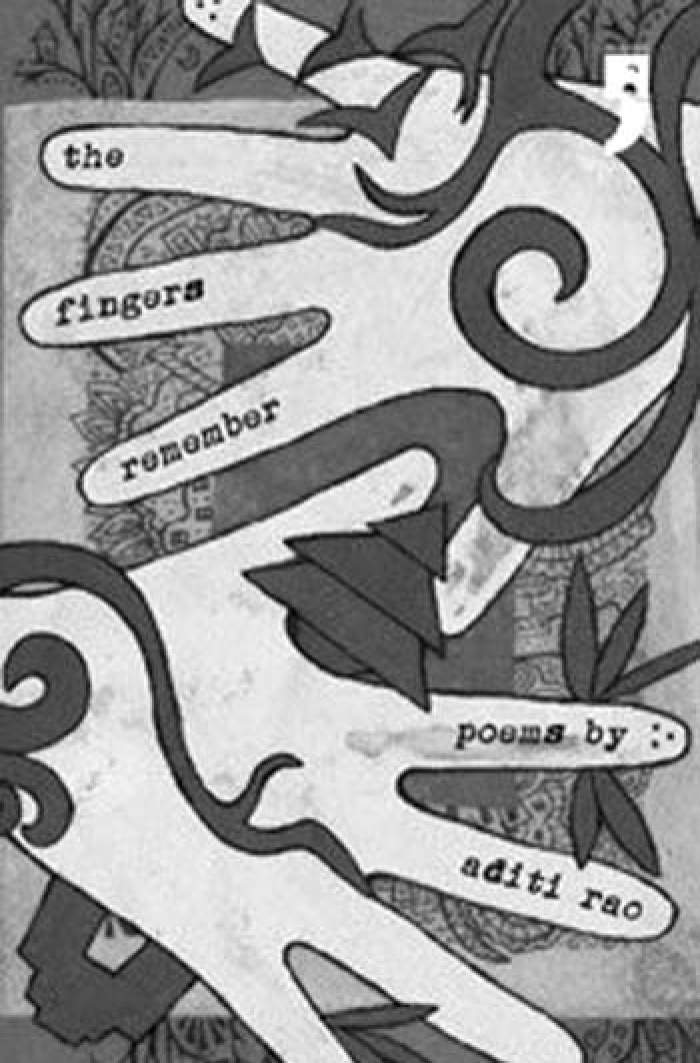A collection of intimate recollections, The Fingers Remember, Aditi Rao’s debut volume of poetry, provides a cache of memories for the intrepid reader. Celebrating poignant personal moments that hold great meaning for Rao, each poem takes one to a different setting, from a mango festival to a monument to a cemetery, and to a few cities as well. The book is divided into sections with titles such as Atharagozaphobia or the feeling of being forgotten or ignored as well as the fear of forgetting, and with the words ‘losing’ ‘goodbye’, and so on in the section titles. Forgetting or the lack of it, or the act of actively trying to forget constitutes the overarching theme of the book, and is seemingly behind every chance impulse of a poem. The flip side of forgetting is remembering, and this too is what the poems attempt to do: to remember, to memorialize deeply personal moments that would, if they remain undocumented, fade into impressions.
The second section titled The Art of Losing recalls Elizabeth Bishop’s famous words from her ‘One Art’: ‘The art of losing isn’t hard to master; / so many things seem filled with the intent / to be lost that their loss is no disaster, …’ Indeed, the first poem is dedicated to Bishop. Here, Rao puts out a plea to her muse for help with ‘learn[ing] to wink / at lost letters, laughters, lovers—your art / of letting continents slip through fingers / … missing pasts and futures …’ What Rao is asking for is the ability to forget while acknowledging the impossibility of the same but questioning the potential of forgetfulness. One of the poems here, ‘Revenge of the Mortal Hand: Written at the 14th-century Madrasa in Hauz Khas’, literally inscribes memory on stone, for example, ‘Shyam loves Mamta’. A monument to education is now preserver of a questionable (forgettable?) love, for who are ‘Shyam’ and ‘Mamta’? Was this an idle afternoon’s scratch? Was it (is it?) a love palpable, still throbbing? Rao resolves the dilemma in ‘Letter Written at an Abandoned Amphitheatre’ by mentioning that an unnamed ‘you’, presumably a friend or lover, has ‘become a story / told so often it is fading. … / I am running out / of you.’ The poem that hits out here, however, is ‘Rubber, Plastic, Gauze’, seemingly a doctor’s apparatus, but used here for constructing a picture of violence which one is only given glimpses of.

